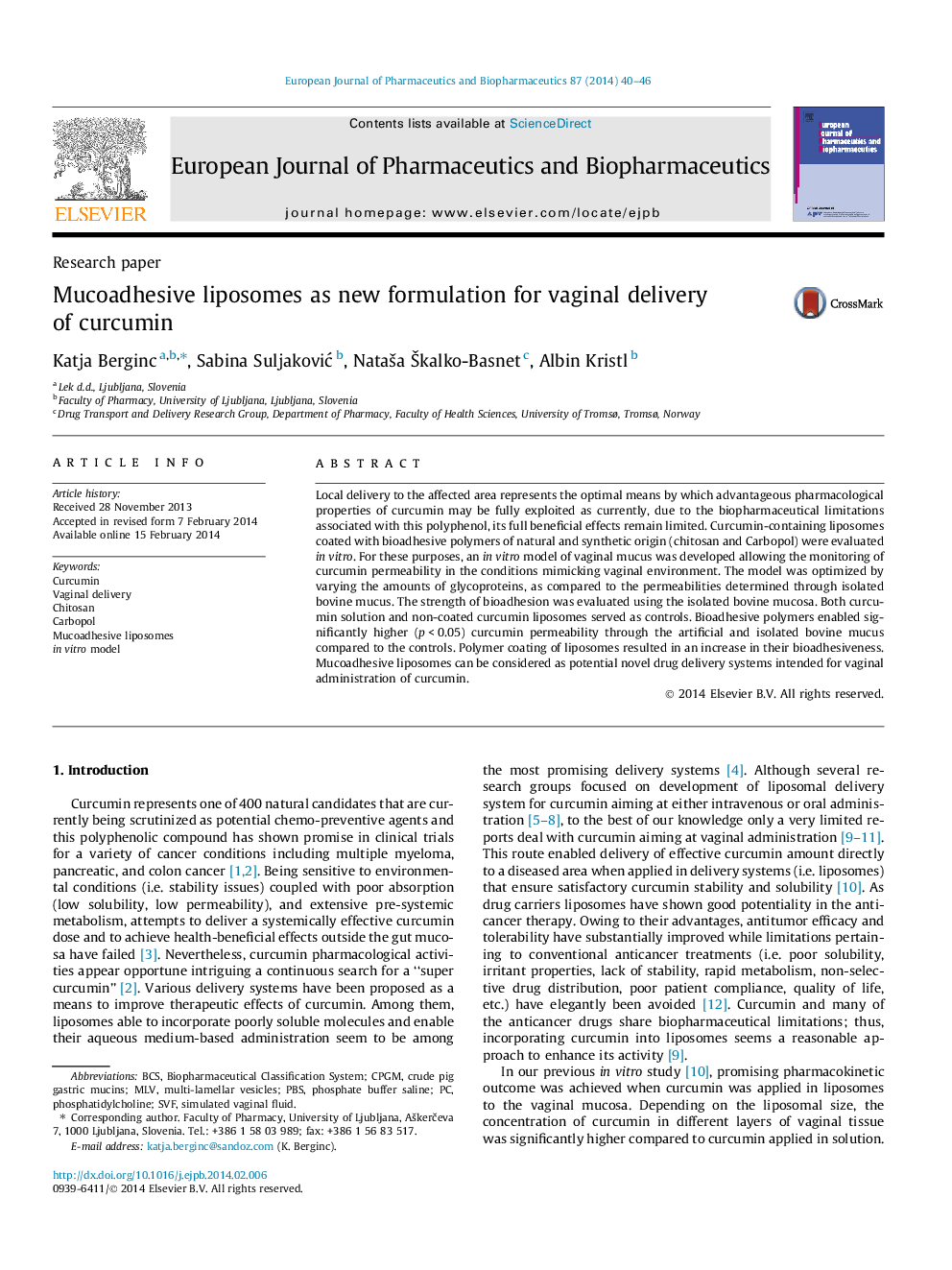| Article ID | Journal | Published Year | Pages | File Type |
|---|---|---|---|---|
| 2083617 | European Journal of Pharmaceutics and Biopharmaceutics | 2014 | 7 Pages |
Local delivery to the affected area represents the optimal means by which advantageous pharmacological properties of curcumin may be fully exploited as currently, due to the biopharmaceutical limitations associated with this polyphenol, its full beneficial effects remain limited. Curcumin-containing liposomes coated with bioadhesive polymers of natural and synthetic origin (chitosan and Carbopol) were evaluated in vitro. For these purposes, an in vitro model of vaginal mucus was developed allowing the monitoring of curcumin permeability in the conditions mimicking vaginal environment. The model was optimized by varying the amounts of glycoproteins, as compared to the permeabilities determined through isolated bovine mucus. The strength of bioadhesion was evaluated using the isolated bovine mucosa. Both curcumin solution and non-coated curcumin liposomes served as controls. Bioadhesive polymers enabled significantly higher (p < 0.05) curcumin permeability through the artificial and isolated bovine mucus compared to the controls. Polymer coating of liposomes resulted in an increase in their bioadhesiveness. Mucoadhesive liposomes can be considered as potential novel drug delivery systems intended for vaginal administration of curcumin.
Graphical abstractFigure optionsDownload full-size imageDownload high-quality image (76 K)Download as PowerPoint slide
